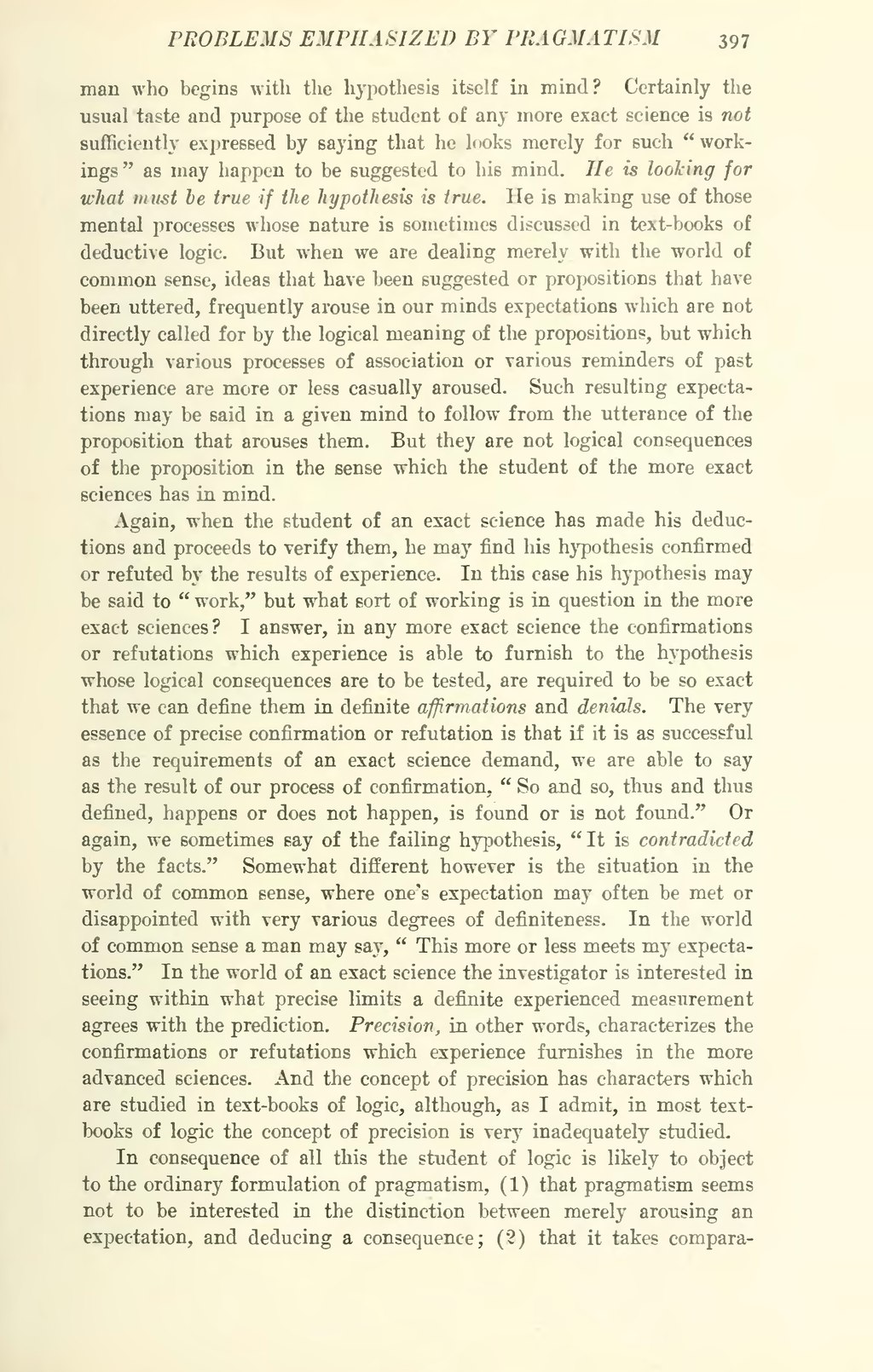man who begins with the hypothesis itself in mind? Certainly the usual taste and purpose of the student of any more exact science is not sufficiently expressed by saying that he looks merely for such "workings" as may happen to be suggested to his mind. He is looking for what must be true if the hypothesis is true. He is making use of those mental processes whose nature is sometimes discussed in text-books of deductive logic. But when we are dealing merely with the world of common sense, ideas that have been suggested or propositions that have been uttered, frequently arouse in our minds expectations which are not directly called for by the logical meaning of the propositions, but which through various processes of association or various reminders of past experience are more or less casually aroused. Such resulting expectations may be said in a given mind to follow from the utterance of the proposition that arouses them. But they are not logical consequences of the proposition in the sense which the student of the more exact sciences has in mind.
Again, when the student of an exact science has made his deductions and proceeds to verify them, he may find his hypothesis confirmed or refuted by the results of experience. In this case his hypothesis may be said to "work," but what sort of working is in question in the more exact sciences? I answer, in any more exact science the confirmations or refutations which experience is able to furnish to the hypothesis whose logical consequences are to be tested, are required to be so exact that we can define them in definite affirmations and denials. The very essence of precise confirmation or refutation is that if it is as successful as the requirements of an exact science demand, we are able to say as the result of our process of confirmation, "So and so, thus and thus defined, happens or does not happen, is found or is not found." Or again, we sometimes say of the failing hypothesis, "It is contradicted by the facts." Somewhat different however is the situation in the world of common sense, where one's expectation may often be met or disappointed with very various degrees of definiteness. In the world of common sense a man may say, "This more or less meets my expectations." In the world of an exact science the investigator is interested in seeing within what precise limits a definite experienced measurement agrees with the prediction. Precision, in other words, characterizes the confirmations or refutations which experience furnishes in the more advanced sciences. And the concept of precision has characters which are studied in text-books of logic, although, as I admit, in most textbooks of logic the concept of precision is very inadequately studied.
In consequence of all this the student of logic is likely to object to the ordinary formulation of pragmatism, (1) that pragmatism seems not to be interested in the distinction between merely arousing an expectation, and deducing a consequence; (2) that it takes compara-
